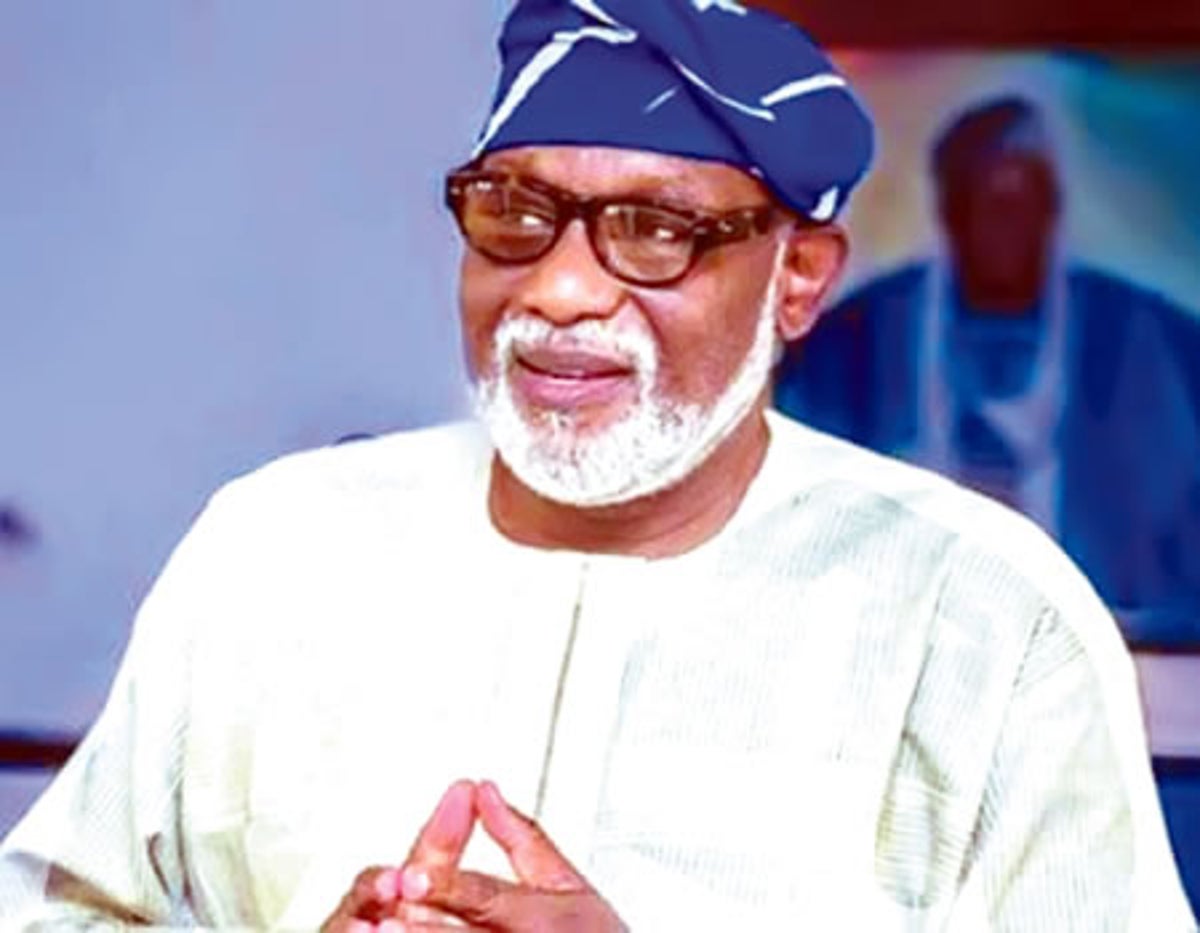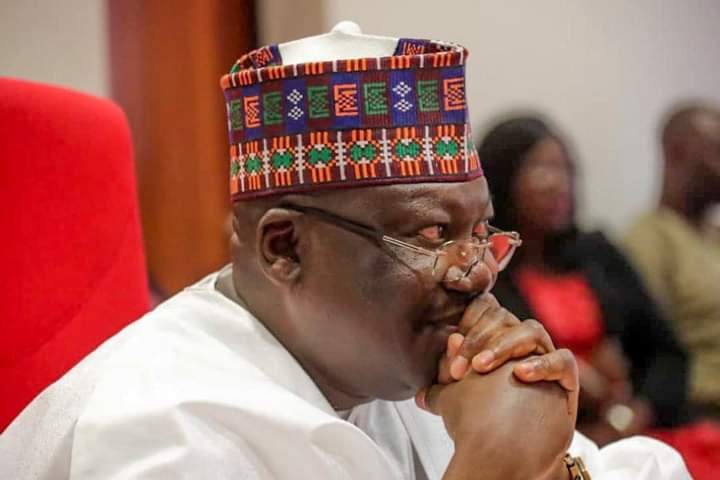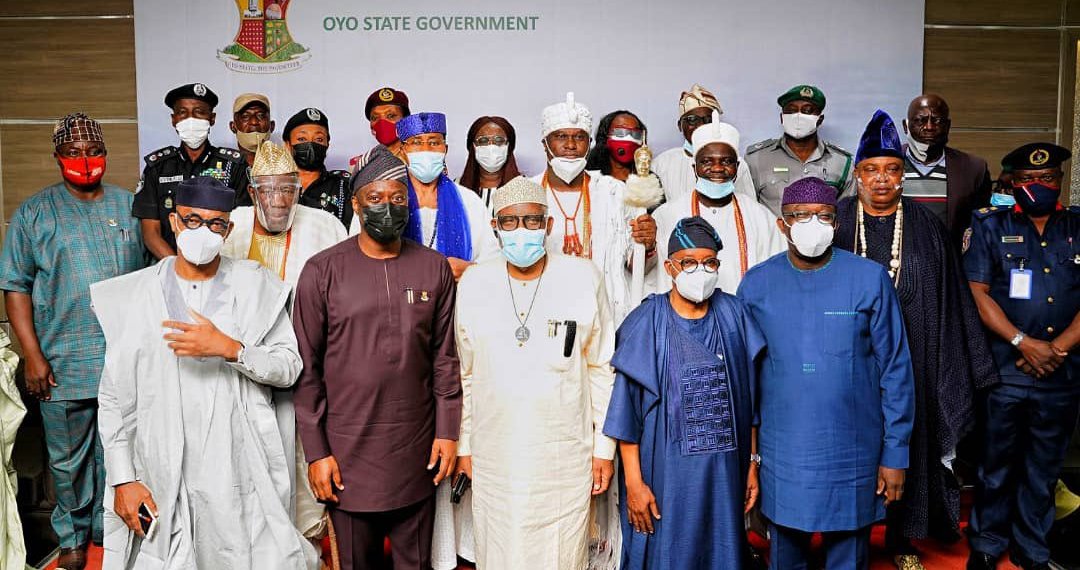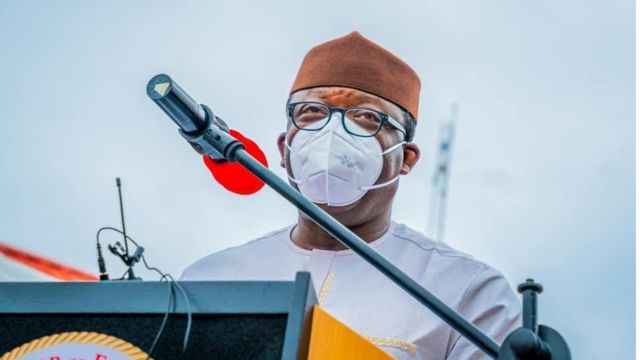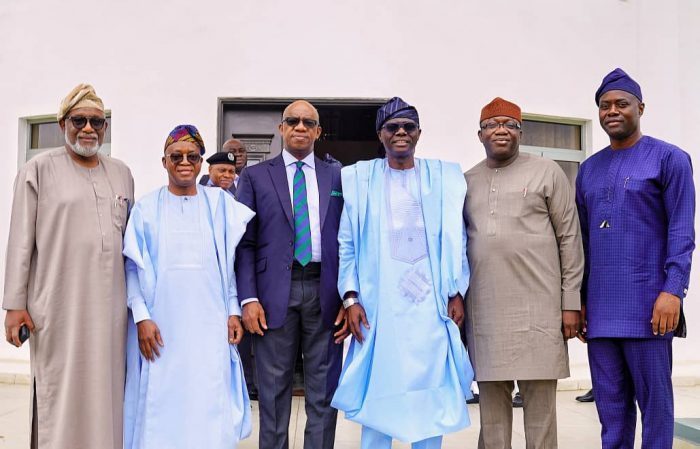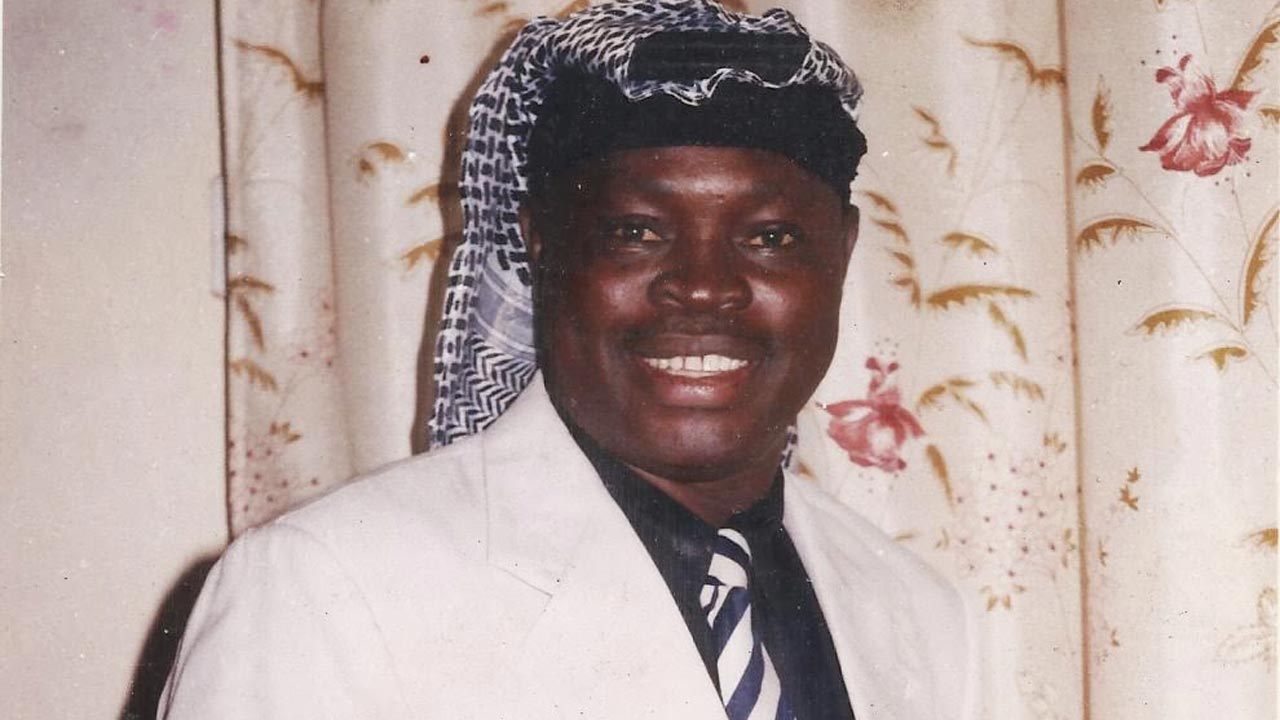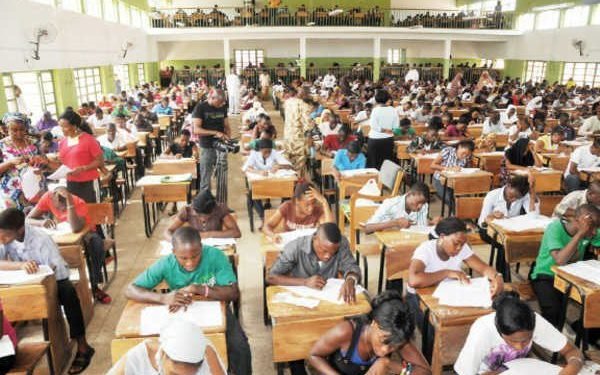Chidi Amuta
Ondo State Governor, Mr. Rotimi Akeredolu, seems every inch an unlikely candidate for rascally adventurism. A man who wears his grey beards naturally without a pretension to the delicacy of incessant grooming can be trusted to govern and decide freely and fairly in matters that concern everyone. Add to this his illustrious legal background and you can be fairly certain that public policy under him will carry the imprints of his learned profession and professorial outlook. Therefore, when a few days ago he handed down a seven-day “quit notice” to Fulani cattle settlers occupying Ondo State government forest reserves, quite a few political antennae went up.
The presidency hurriedly fired the first cautionary salvo. Its contention was that the Governor’s quit notice to the herdsmen and settlers breached the Nigerian constitution which guarantees to every Nigerian citizen the right to live, work and ply their legitimate trade in any and every part of the federation. For the presidency, a governor as the protector and guardian of every citizen of his state has no right to order any set of citizens to leave the state let alone threatening them with the possibility of eviction.
What may have escaped the author’s of the presidency statement on the Ondo state matter is of course the converse truism in the constitution that the governor is the chief security officer of his state. To that extent, he retains the prerogative of determining what constitutes a threat to the peace and security of the state and is therefore legally empowered to take whatever measures he may deem fit to ensure the peace, security and order of the state. The right of abode of citizens does not override the responsibility of state governors to maintain security and orderly peace nor does it alleviate the burden of the criminal justice system to punish crime.
In the South West in particular, the threat of the Fulani criminal herders has been received with a rather concerted pan-Yoruba ethnic reflex of collective self preservation and regional security. On the scale of violent criminality, the Fulani roving gangs rank rather highly in terms of fire power, tactical efficiency and logistical co-ordination.
On its part, the Ondo state government retorted that the Fulani and herder settlers in question have allowed themselves to become a source of insecurity in the state. In addition, the locations occupied by the herdsmen happen to be mostly government owned forest reserves which require the explicit authority and permission of the governor to be occupied by any set of citizens. The constitutionally guaranteed right of abode does not confer a right to occupy public or private property illegally. Therefore, we are torn between the constitutional right of Nigerians to reside and work anywhere in the federation, the obligation of state governors to guarantee the security of their states and the legal requirement that right of occupancy of government property should be in compliance with specific authority and express permits.
But we are not in the terrain of a legal tussle between settler Fulani herdsmen and the government of either Ondo state or indeed any other state in the federation. We are instead confronted with a larger national security problem which has enlarged in the last five to six years. It is the frequent friction between settler farming communities and migrant herders in various locations in the country. This existential friction has been aggravated by frequent reported involvement of Fulani herdsmen in acts of open criminality ranging from kidnapping to murder, rape and transactional abductions. The face off in Ondo State resonates with echoes of these novel but familiar feature of Nigeria’s altered state of national security.
Spontaneously, the face off in Ondo state quickly spiraled into an ethnic friction between the larger Yoruba nation of the South West and the largely Fulani settlers and migrant herders in the entire region. Houses were burnt and property destroyed. Since then, matters have escalated to the extent of threatening the security of the region. This fact has raised anxiety levels in various parts of the country. The concerted responses have been varied.
In the South West in particular, the threat of the Fulani criminal herders has been received with a rather concerted pan-Yoruba ethnic reflex of collective self preservation and regional security. On the scale of violent criminality, the Fulani roving gangs rank rather highly in terms of fire power, tactical efficiency and logistical co-ordination.
It would be recalled that as part of a regional security arrangement to protect the South West from the excesses of violent and criminal Fulani herdsmen, the states in the region enacted legislation for the establishment of the security outfit, Amotekun, as a state funded para- military vigilante empowered to combat acts of insecurity in the region.
Understandably therefore, the Ondo state Fulani “quit notice” saga had a potential of spreading and into a regional headache and potential national nightmare. Oyo state, the historic epicenter of political activism in the South West, quickly ignited in mob solidarity with another ‘quit notice’, this time issued by a folk catalyst of Yoruba youth activism. A certain Sunday Igboho, acclaimed Yoruba nationalist folk hero, youth crowd catalyst, mob contractor and galvanizer of rough followership quickly mobilized mammoth crowds of angry unemployed youth and miscreants against the menace of Fulani criminal herdsmen in parts of the state. The state governor was politically immobilized and a bit confused.
In a nation currently riven by powerful divisive pressures, the response from other factions in the new normal were predictable. Threats of angry reprisals came from the Arewa Consultative Forum (ACF), a motley assembly of fundamentalist hot heads, militant jihadists and political power opportunists. This merely stoked the firestorm of incendiary rhetoric and solidarity around Mr. Igboho and his mammoth followership. The pro-Biafran separatist movement, IPOB, quickly joined the rhetorical fray by voicing incendiary support for the Yoruba youth movement and warning the Oyo state police command to mind the thorns.
A cascade of events and responses followed. The outgoing Inspector General of Police, Mr. Adamu initially ordered the arrest of Mr. Igboho for disturbing the peace and issuing an illegal quit notice to fellow citizens. The major pan Yoruba cultural and ethno national groupings voiced their support for the anti-Fulani rhetoric of the angry youth and state regional state governments. Significant Yoruba leaders and elders like former president Olusegun Obasanjo, Wole Soyinka and sundry traditional rulers insisted that the Fulani settlers and herdsmen must exhibit responsible citizenship if they must remain in the South West to ply their cattle trade. Clearly, between a primordial sense of collective self preservation and the rights of settler groups backed by the fiat of officialdom, one side needed to blink.
Happily, a certain degree of political common sense and statesmanship has kicked in to douse a frightening descent into something with an ugly name. President Buhari has met with affected governors of the South West and some traditional rulers. An imminent worsening of Buhari’s insecurity nightmare has hopefully been postponed. But the governors have insisted that all herdsmen in their domains should register to ply their trade. The police has sensibly desisted from the usual arrests of suspected mob leaders including the feisty Sunday Igboho. But the skirmish over the Ondo state Fulani quit notice has laid bare the outlines of the new atmosphere of hate and intemperate rhetoric that now defines Nigeria’s diversity and has mortally injured our extant tradition of harmonious inter communal relations.
Somehow, in this brief encounter between the Ondo state government and its Fulani citizens and the responses to it, a number of the issues that assail Nigeria’s current insecurity and national future have been openly spelt out.
Through this incident, the roving tragedy of recent nationwide insecurity has served notice in a wrong place. It is an elementary truism in national security that every nation has its peculiar ecology of trouble and violent crisis. Bad spots and fault terrains exist in every nation space. Some regions and precincts are simply more prone to the recurrence of nasty history and violent outcomes. The South West region of Nigeria has an uncanny long distinction of being an unfriendly terrain for trouble makers. Here, a high level of political libertarianism and populist democracy ensures that matters of a political nature could quickly degenerate into fiery exchanges and violent eruptions.
Nigerian history is replete with instances of what happens when trouble happens along Nigeria’s Western by-pass. The list is impressive: the Western Nigeria crises of 1964 that presaged the civil war, the July1966 assassination of General Ironsi in Ibadan that quickened the march to war, the Agbekoya hunters uprising of 1968-69, the Second Republic Akin Omoboriowo political mayhem in Ondo in 1993, the 1992/93 pro-June 12 demonstrations, the Lekki Toll Gate ENDSARS protests in 2020 etc. The South West has a way of signaling major pathways of change in Nigeria. This is not accidental. It is the by-pass to and from Lagos. Fortuitously also, the road to Lagos is the road to Nigeria. Shut off that by-pass and there may be no more Nigeria. Any government in Abuja would ignore rumblings along the Western by-pass at great political cost.
The effort of the Ondo State government to rid its forest reserves of dangerous herders and settlers should not be reduced to our usual ethnic arithmetic. There is a serious strategic consideration in allowing patches of territory in any of our states to become an ungoverned space where organization and groups could grow into monster enclaves that could threaten national security. This is precisely how Boko Haram grew into the monster that has returned to haunt the nation. When they were routed by the Borno state government following the death, in detention, of their original leader, Mr. Mohammed Yusuf, Boko Haram adherents fled to and settled in Sambisa forest, a vast ungoverned space.
For years, the area became a space in which they established training facilities, ferried in arms and ammunition and gradually grew the idea of a dangerous caliphate while reaching out to international jihadist movements. By the time, the group became a perceivable threat to the government, it was almost too late. The monster that was allowed to breed and grow in Sambisa forest has been haunting the nation for over a decade and still counting.
The specific topicality of the Fulani as a factor in our national history and security was never more prominent than now. The peaceful herdsmen of yesteryears have given way to a new variant. The escort of cattle has recently become a vehicle for the transportation of terror by young Fulani herdsmen wielding military grade weaponry and fully equipped with sophisticated global positioning gear. Their pattern of spread and operational formations across the country do not seem to be accidental or dictated by the familiar business of escorting cattle to markets. The routine garnering of huge ransom from kidnap victims by these itinerant foot soldiers could tempt some to speculate that this could be a funding strategy for something bigger.
The growing impression that the Fulani criminal gangs may be enjoying official protection and enablement under the Buhari presidency is by no means a glowing tribute to this administration. Acts like quick presidency official statements in matters that concern the Fulani in particular help to reinforce this feeling of selective enablement.
Similarly, untidy political skirmishes such as the ill -fated establishment of the RUGA settlements or the vicious promotion of the defunct Water Resources Bill at the National Assembly do not help those intent on defending the Fulani. Such antics have only raised the level of suspicion among the rest of Nigerians. These political pranks make it more difficult to promote the legitimate interests and entitlements of the Fulani as Nigerian citizens.
The current atmosphere has created a potential for the isolation of the Fulani as targets of permanent suspicion and even hate by other groups in the country. In a nation that is still predominantly tribal in its reflexes, the excesses of the Fulani could create an anti Fulani solidarity among other nationalities. This would be a sad outcome of the Buhari presidency. With a tiny modern elite, with no specific spatial territorial patrimony and without substantial tangible economic holdings, the current leadership of the Fulani nation could be preparing their follows for long term irreparable collective damage.
Another significant worrisome feature of our new reality that the Ondo state matter has raised is the rise and influence of mob influencers in national affairs. When the Fulani quit notice saga spread to Oyo state, the presence of Mr. Sunday Igboho raised more security concerns. As a Yoruba folk champion, Mr. Igboho probably had more spontaneous mob following than Governor Makinde could ever dream of. He is not alone in the country. In the South East, I wager that Mr. Namdi Kanu and his IPOB mob probably have more followership than all the governors in the region. The South South region has its Tompolos and Asari Dokubos as mob influencers with considerable followership. These elements appeal primarily to ethnic and regional sentiments of unemployed youth and the army of thugs from among the mammoth crowds of poor Nigerians. These individual mob leaders now constitute an unofficial tier of underground and illicit sovereignty that cannot be ignored in any realistic estimate of either our democratic future or even national security.
In all of this, what we are witnessing is the danger of a divisive governance strategy by the current federal administration. At no time has the challenge of managing a large diverse nation been more pronounced in Nigeria than now. It is a measure of how bad things have gotten in the country that nearly every issue, every political appointment and every act of violent insecurity is now given an ethnic or regional interpretation. Significantly, nearly every incident of violent insecurity wears the outlook of an insurrection, a veritable challenge to the dwindling might of the federal authority.
The recent threats in the South West are not about the Yorubas or the South West region alone. It is about Nigeria and its future as a coherent nation united by faith in our original ideals. The bonds of trust and community that held the nation together for decades have been tasked to breaking point. Dire economic conditions and the consequences of a debilitating pandemic have only worsened a bad situation. In ordinary circumstances, these uncertainties put added pressure on the faith of the citizenry in the ability of government to act as a universal guarantor of citizen welfare and national order.
The requisite roll back from the current precipice should be a combination of remedies. Fix insecurity. Reduce inequality. Mend the broken fences of communal trust. Restore trust and confidence in the ability and impartiality of government. Above all else, re-unite the nation. It is too late now to ask Mr. Buhari to make our lives any better. But at least his administration should restore the cohesion of the nation to at least where they found us in 2015.

